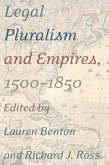Ohio Canal Era, a rich analysis of state policies and their impact in directing economic change, is a classic on the subject of the pre-Civil War transportation revolution. This edition contains a new foreword by scholar Lawrence M. Friedman, Professor of Law, Stanford Law School, and a bibliographic note by the author.
Professor Scheiber explores how Ohio-as a "public enterprise state," creating state agencies and mobilizing public resources for transport innovation and control-led in the process of economic change before the Civil War. No other historical account of the period provides so full and insightful a portrayal of "law in action." Scheiber reveals the important roles of American nineteenth-century government in economic policy-making, finance, administration, and entrepreneurial activities in support of economic development.
His study is equally important as an economic history. Scheiber provides a full account of waves of technological innovation and of the transformation of Ohio's commerce, agriculture, and industrialization in an era of hectic economic change. And he tells the intriguing story of how the earliest railroads of the Old Northwest were built and financed, finally confronting the state-owned canal system with a devastating competitive challenge.
Amid the current debate surrounding "privatization," "deregulation," and the appropriate use of "industrial policy" by government to shape and channel the economy. Scheiber's landmark study gives vital historical context to issues of privatization and deregulation that we confront in new forms today.
Professor Scheiber explores how Ohio-as a "public enterprise state," creating state agencies and mobilizing public resources for transport innovation and control-led in the process of economic change before the Civil War. No other historical account of the period provides so full and insightful a portrayal of "law in action." Scheiber reveals the important roles of American nineteenth-century government in economic policy-making, finance, administration, and entrepreneurial activities in support of economic development.
His study is equally important as an economic history. Scheiber provides a full account of waves of technological innovation and of the transformation of Ohio's commerce, agriculture, and industrialization in an era of hectic economic change. And he tells the intriguing story of how the earliest railroads of the Old Northwest were built and financed, finally confronting the state-owned canal system with a devastating competitive challenge.
Amid the current debate surrounding "privatization," "deregulation," and the appropriate use of "industrial policy" by government to shape and channel the economy. Scheiber's landmark study gives vital historical context to issues of privatization and deregulation that we confront in new forms today.
Dieser Download kann aus rechtlichen Gründen nur mit Rechnungsadresse in A, D ausgeliefert werden.









